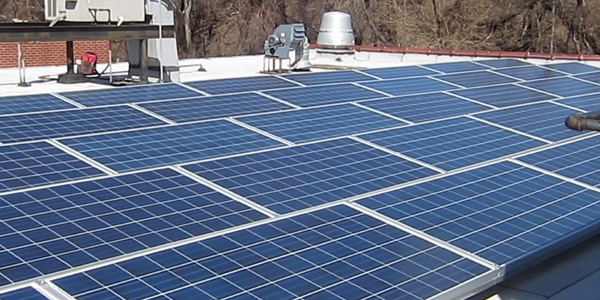By Michael Kuser
Consolidated Edison on Thursday reported its second-quarter net income dropped almost one-third from a year ago, mainly reflecting changes in rate plans and regulatory charges and the impact of weather on revenues from the company’s district-energy steam system.
The company posted $175 million in net income for the quarter ($0.57/share) on $2.63 billion in revenue, compared with $232 million ($0.78/share) on $2.79 billion in revenue in 2016.
Adjusted earnings — which exclude the gain on the sale of a solar electric production project, the impairment of a solar electric production investment in 2016 and the mark-to-market impact of the company’s Clean Energy Businesses — were virtually equal to last year at $178 million ($0.58/share) versus $179 million ($0.60/share) in 2016.
The new electric rate plan for Consolidated Edison Company of New York (CECONY) included changes in the timing of recognition of annual revenues between quarters. Operations and maintenance expenses for CECONY for the second quarter and first half reflect lower pension costs and lower regulatory assessments and fees.
CEO John McAvoy said the company has begun installing smart meters and offering customers new products such as smart air conditioners and Wi-Fi-enabled thermostats.
NYPSC Actions
The New York Public Service Commission on Aug. 2 approved a pilot 3-MW solar project by CECONY aimed at saving low-income customers money on their utility bills (16-E-0622). Con Ed will place the solar panels on rooftops and property owned by the utility.
The commission also directed the utility to change the way it tries to collect money from delinquent customers (16-M-0501). Specifically, Con Ed must propose a process for executing deferred payment agreements and make the company’s meter-seizures “much more straightforward,” the order said.
“To prevent backsliding, Con Edison is required to provide quarterly updates to commission staff to ensure the new procedures are being properly executed,” PSC Chair John B. Rhodes said.
The Public Utility Law Project of New York had requested that the commission examine the utility’s methods of seizing customers’ electric or gas meters for unpaid bills, as well as the way it negotiates deferred payment agreements.
The commission also voted to issue an order on Con Ed’s response to a power outage April 21 that cut electricity to the Seventh Avenue subway station and led to a loss of the subway signals (17-E-0428).
Although the order was not immediately available, it is expected to require the company to create a stockpile of emergency generators that could be deployed anywhere in the system within 30 minutes take actions, as laid out in a July 26 letter from Rhodes.
He also said Con Ed would need to replace its aluminum cables with failure-resistant copper cables and install backup electric lines to eliminate single points of failure. It also must analyze power supply and power quality affecting the subway’s signal system.
Gov. Andrew Cuomo said last week that power-related issues caused more than 32,000 subway delays in the last year.




